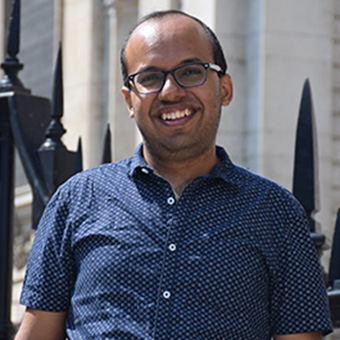Narendra Mukherjee, PhD’18, Neuroscience
 Machine Learning Scientist
Machine Learning Scientist
Can you describe your career path and how it has led to your current work experience?
In my PhD thesis research, I studied stimulus processing in the brain from a complex systems perspective. Moreover, I developed new hardware and software technology to extract insights from terabytes of neural recordings for which I had to learn and expand upon the recent advances in statistics, machine learning and Bayesian inference. The set of skills I developed in my research became relevant to my current work as a Machine Learning Scientist at TripAdvisor, where I spend most of my time building and applying statistical models that are very similar to the ones I developed in my PhD work.
What skills from your Brandeis degree have you found most valuable in your current work?
My daily work at TripAdvisor is very similar to a day in the lab (except for wet lab experiments). The presentation and writing skills I picked up as a PhD student are extremely important and relevant in my current work. Above all, essential research skills including perseverance and the ability to quickly formulate alternate hypotheses are valued by data-related industries.
What services and/or resources did you use while at Brandeis for your career search? (i.e. The Center for Career and Professional Development, program administrators, professors, peers etc.)
My professors and peers in the Neuroscience program provided a lot of motivation and advice for my career choices - the biggest support came from my advisor, Professor Donald Katz and the people in the lab (especially Drs. Veronica Flores and Meredith Blankenship). I also spent several hours talking about my thoughts and apprehensions about the career search process with Dr. Jena Pitman-Leung, the program administrator for the Neuroscience PhD program, who was very generous with her time and wisdom in thinking about careers outside of academia.
What advice do you have for current students as they embark on their job search?
I think that it is important to be thinking of careers/jobs around the second or third year of your PhD. I think figuring out a satisfying career path in line with all the specialized skills one gains during PhD research takes a lot of time. Furthermore, it is important to be aware of all the career opportunities available outside of academia. Both academia and industry have their pros and cons which might appeal to each person differently. I highly recommend people to do at least one internship in an industry position during their PhD to expose themselves to the corporate environment. Overall, it is important for each person to think about their own interests, skills, and goals in life in the context of the opportunities available to them.






